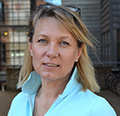The swAge model (Sustainable Working life for all Ages) is a theoretical model regarding determinant factors and measures to enable a sustainable working life for all ages.
The swAge model includes:
Nine determinant areas for being able and wanting to work: The model visualizes the nine different determination areas for being able and wanting to work, which are described in more detail in future lectures.
Four spheres of determination for a sustainable working life: The spheres of determination will be described in detail in future lectures. The four spheres of determination relate to the four considerations that individuals make in order to continue working or leave the workplace. The four areas of determination also show the areas where measures need to be taken to make working life sustainable for all ages.
Age: The model also shows how the nine determinant areas for a sustainable working life relate to different ways of defining age.
The swAge model is used in many workplaces as a tool for reflection in the organization of work, in management, in the exercise of authority, in the distribution of work, in employee interviews, to organize the systematic work environment management, etc.


